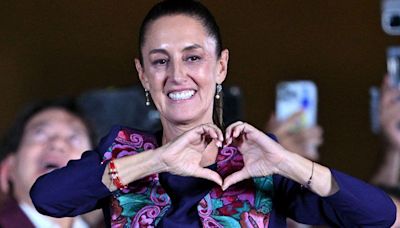Search results
People also ask
What is a biological woman and man?
What is a female person?
Is a girl a woman?
A woman is an adult female human. Before adulthood, a woman is referred to as a girl (a female child or adolescent). Typically, women are of the female sex and inherit a pair of X chromosomes, one from each parent, and fertile women are capable of pregnancy and giving birth from puberty until menopause.
Sep 19, 2021 · Cisgender: A term used to describe an individual whose gender identity aligns with the one typically associated with the sex assigned to them at birth. This is a term that is preferable to “non-trans,” “biological,” or “natal” man or woman.
- 333 Cedar Street, New Haven, 06520, CT
Jul 24, 2022 · woman. 1. An adult female person; a grown-up female person, as distinguished from a man or a child; sometimes, any female person. Women are soft, mild pitiful, and flexible.
Aug 27, 2022 · 1. Belonging to the sex which conceives and gives birth to young, or (in a wider sense) which produces ova; not male. As patient as the female dove When that her golden couplets are disclosed. (Shak) 2. Belonging to an individual of the female sex; characteristic of woman; feminine; as, female tenderness.
- What Are The Biological Differences Between Males and females?
- Differentiating Gender and Sex
- Biological Differences in Fertility
- Quanitity of Hormones Determines Differences in Secondary Sex Characteristics
- The Non-Sexual Functions of The Sex Hormones
We all know that male and female humans are anatomically different. Furthermore, the male and female bodies behave differently when it comes to the manifestations and treatments of various diseases. These differences are due to biological and genetic reasons. Upon closer examination, the presence of several hormones and other chemicals, especially ...
In recent years, there has been a push from doctors, health organizations, and the queer community to define and differentiate between sex and gender (and with that, gender identity). According to the Planned Parenthood website, sex is assigned at birth by a doctor (either male or female), whereas gender is assigned by social and legal statuses lar...
Fertility is one of the major differences between men and women. On one hand, men are continuously fertile, beginning at puberty to almost 100 years of age (though by that time, they are physically unable to engage in sexual activities). Until very late in life, sperm is still viable, though of poorer quality. Men are fertile for this long because ...
The obvious physical differences between the sexes are influenced by the number of androgens and estrogens, two chemicals from the steroid family of chemicals that are released into our bloodstream. The biggest differences occur during the development of our secondary sex characteristics which begins at puberty. We know what they generally are and ...
Sex hormones not only exert their effects on the reproductive organs but also affect the physiological functions of non-reproductive tissues as well. These tissues are generally called somatic cells as they essentially make up the rest of the tissues in the body ("soma" is the Latin word for "body"), such as the muscles, eyes, bones, etc.
Oct 19, 2023 · Gender is an amalgamation of several elements: chromosomes (those X’s and Y’s), anatomy (internal sex organs and external genitals), hormones (relative levels of testosterone and estrogen), psychology (self-defined gender identity), and culture (socially defined gender behaviors).
Sep 1, 2017 · The New Science of Sex and Gender. Why the new science of sex & gender matters for everyone. By The Editors. BSIP Getty Images. September 2017 Issue. Biology. Sex is supposed to be simple—at...



